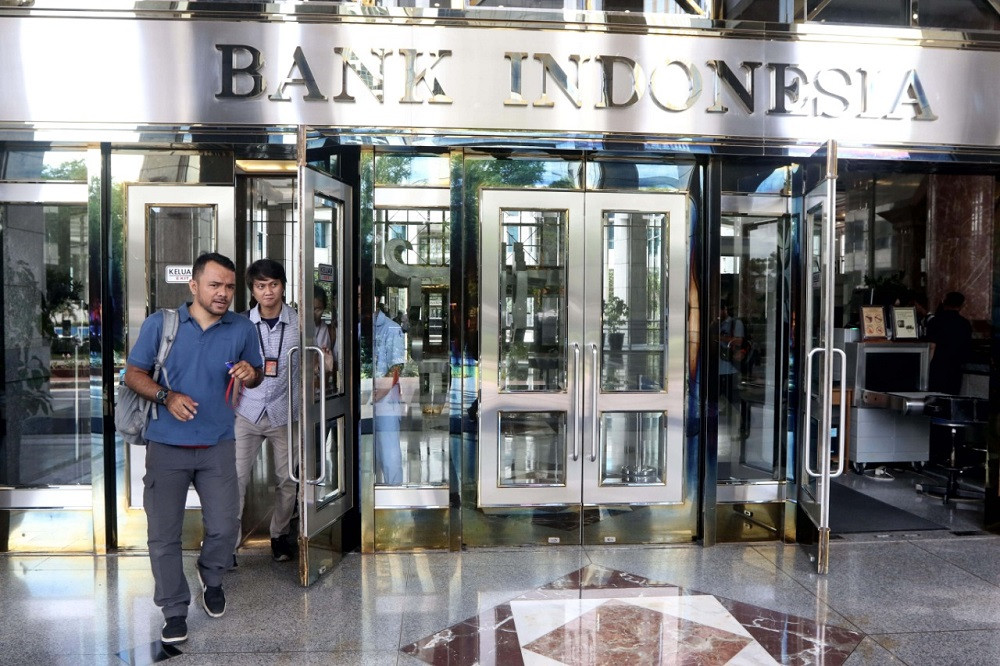Popular Reads
Top Results
Can't find what you're looking for?
View all search resultsPopular Reads
Top Results
Can't find what you're looking for?
View all search resultsBI expects muted inflation, looks to ‘nudge demand, growth’
Central bank expects economy to rise by 3.8% if COVID-19 tamed
Change text size
Gift Premium Articles
to Anyone
B
ank Indonesia (BI) has lowered its economic growth forecast for this year to 3.8 percent, maintaining its expectation for tame inflation following the introduction of COVID-19 mobility restrictions.
The central bank’s previous GDP growth projection for this year was between 4.1 and 5.1 percent with a median estimate of 4.6 percent, as the country was poised for a rebound before the second wave of COVID-19 and the attendant emergency public activity restrictions (PPKM Darurat).
“Our initial assessment shows that, if the PPKM Darurat lasts for a month and is able to curb COVID-19, economic growth will fall to around 3.8 percent,” BI Governor Perry Warjiyo told a House of Representatives hearing on Monday.
The central bank’s downward revision comes after a similar move earlier this month by the government, which revised down its economic growth forecast to between 3.7 and 4.5 percent from 4.5 to 5.3 percent.
The government and BI slashed their GDP growth forecasts as the emergency restrictions were enforced from July 3 to 20 across Java and Bali. The tighter restrictions were also applied to several other regions that recorded an increase in infections, supply and capacity shortages at hospitals and met other parameters in recent days.
Read also: GDP growth forecast slashed to 3.7-4.5% as pandemic worsens
Indonesia’s GDP growth showed signs of recovery in the first quarter, when the annual rate of contraction slowed to 0.74 percent, less than in the preceding quarters.
BI also expected inflation to hover at between 2 and 4 percent as consumer prices remained muted.
“Inflation will stay low because demand also remains low, and for us, the effort will not be about getting inflation under control but rather nudging demand and growth,” said Perry.
The consumer price index (CPI) was up 1.33 percent year-on-year (yoy) in June, marking a slowdown from May, while monthly core inflation was at 0.16 percent. Both administered and volatile prices recorded declines on a monthly basis as prices normalized.
Meanwhile, the wholesale price index (WPI) was up 2.53 percent yoy in June.
Read also: Indonesia sees monthly deflation in June as food, transportation prices normalize
Faisal Rachman, an economist at publicly listed state-owned Bank Mandiri, said the annual inflation rate was expected to stand at 2.28 percent this year, slightly above the lower bound of BI’s target range.
Aside from money supply growth, said Faisal, producer prices, which had been rising faster than consumer prices in recent months, would cause inflation to pick up as rising global commodity prices and raw material shortages drove up production costs.
“But the downward pressure on inflation has also increased as the PPKM Darurat [came into force], which will reduce demand to a certain degree and thus lower the potential for demand-pull inflation that might happen during the recovery process,” Faisal told The Jakarta Post by text message on Tuesday.










